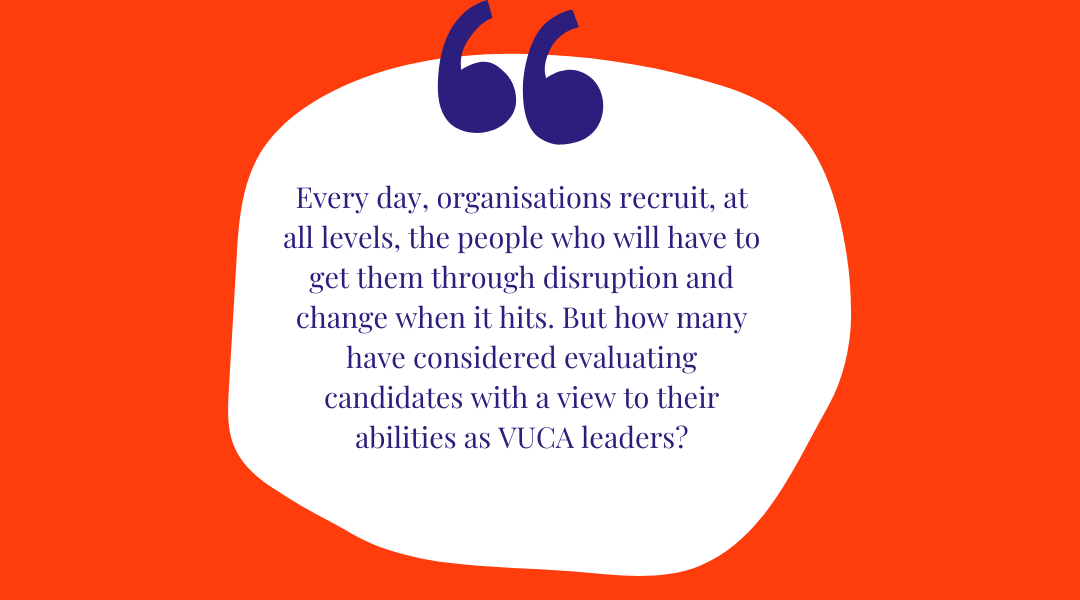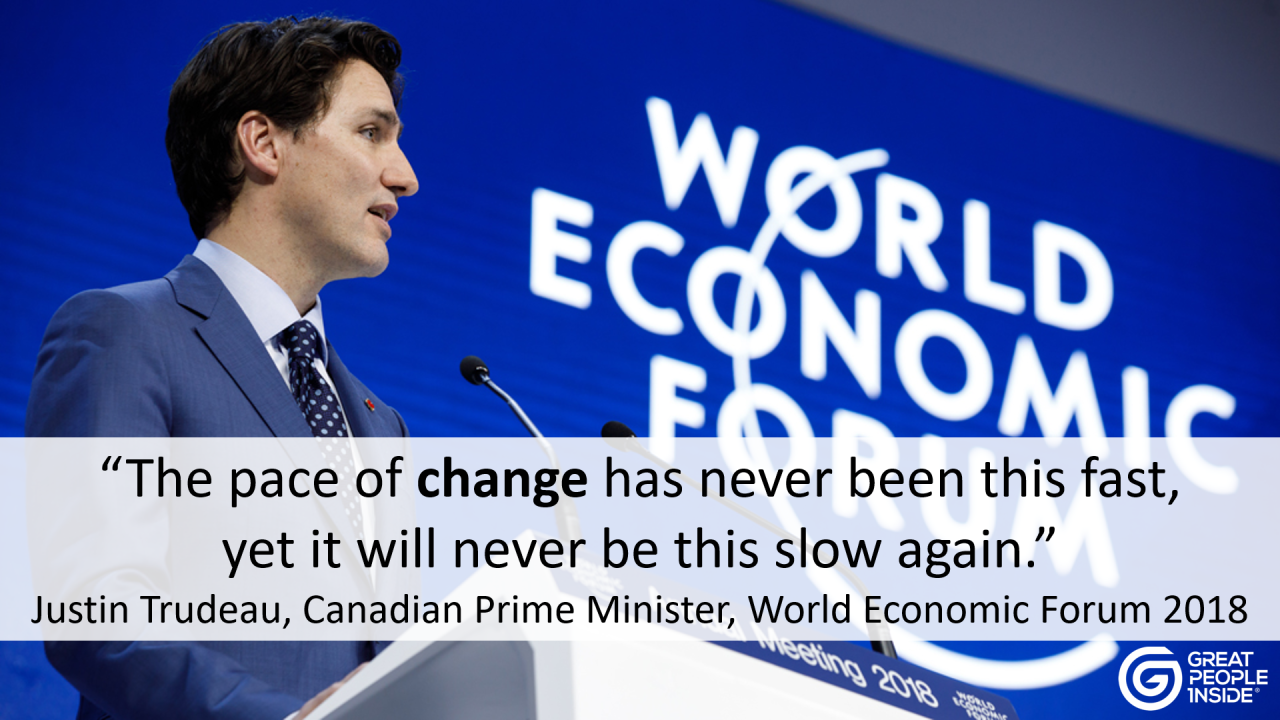How to manage change in a VUCA world
The world is facing an uncertain future. Even before Covid-19 businesses were expecting radical change from situations such as Brexit, artificial intelligence, the gig economy and environmental change. So how do you have the right people in your business to deal with all this change – your VUCA leaders?
COVID-19, which no one was forecasting under a year ago, has been the most disruptive event in our lifetimes. It has devastated countries, economies, businesses, individuals, families and communities. But there may be others waiting in the wings that, like COVID, we currently know nothing about.
The big questions for your organisation are:
• Which change elements will affect you?
• To what degree?
• Will a combination of any two, three, four or more elements alter how all these changes impact your business?
The truthful answer is no-one knows (not even the so-called gurus and experts). This means you need leaders in your organisation capable of anticipating/responding/ reacting to change when it happens and responding again when it changes again.
Do you have the people around you who are capable of dealing with this ongoing, rapidly accelerating, tsunami of change?
Thinking back to the beginning of the COVID crisis, who among your managers disappointed you with their response? Who impressed you? Were any of these a surprise to you (either positive or negative)? Those who responded well are, potentially, your VUCA Leaders. And what about your future recruits? Every day, organisations recruit, at all levels, the people who will have to get them through disruption and change when it hits.
Undoubtedly, many organisations will have assessed their potential employees to ensure they can do the job they are being recruited for. But how many have even considered evaluating candidates with a view to their abilities as VUCA Leaders?

What is VUCA?
VUCA is a US military acronym, now widely used in the business arena to describe the issues that change creates for organisations. It stands for Volatility, Uncertainty, Complexity and Ambiguity – the four-pronged attack we see whenever change hits us.
But what does it mean in practise, what impact does it have and how can we deal with it.
Volatility: The more volatile the world is, the more, and faster, things change.
Uncertainty: The more uncertain the world is, the harder it is to predict.
Complexity: The more complex the world is, the harder it is to analyse.
Ambiguity: The more ambiguous the world is, the harder it is to interpret.
Now, more than ever, leaders need the courage to step up to these challenges and make audacious decisions when they are unlikely to have anything close to all the facts. For data-driven leaders, this will go completely against their natural instincts.
How do I know who is a natural VUCA Leader and what can I do about people who aren't?
Individuals need to be visionary, courageous and flexible to anticipate change but, because sometimes they can only react to unexpected change, they need to be able to withstand stress, show resilience and demonstrate strong leadership.
Not everyone has the required qualities - and employers can’t always tell who does until it's too late. You need an assessment tool that measures the capacity, and potential, of existing employees and highlights the individual strengths and development gaps that correspond to the leadership needs of the organisation.
The same assessment and benchmark are used for potential employees during the recruitment process, ensuring that they possess all the necessary traits and abilities displayed by successful, current VUCA Leadersin your organisation.
Organisations can't avoid or ignore change. All they can do is equip themselves to respond more effectively so that they survive and thrive.
.png)
For more information please go to Great People Inside


